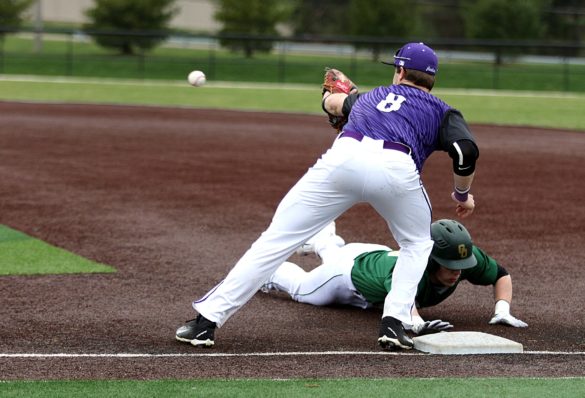

The athletic community in recent years has lobbied for student athletes to receive salaried pay for collegiate athletics but still frequently debates the constitutionality of randomized drug testing. Since the trend to test student athletes for drug use emerged in the late 1980s, the subject has garnered heated debate from both sides. The case in Colorado that further cemented the state’s stance on the matter was University of Colorado v. Derdeyn.
CU student athletes of the 1984-85 academic year were subject to a new drug testing program for on-campus sports, according to court documents. CU claimed the program was put in place to prepare athletes for NCAA drug testing for sanctioned sporting events and the overall culture of the professional athletic community standing against performance-enhancing drug use.
According to court documents, the program originally required a urine test at each intercollegiate athlete’s annual physical and implemented random urine tests after. After a first positive test result, counseling was required for the student; after a second, the student was suspended for participation in intercollegiate athletic activity for seven days; and after a third, the student athlete was suspended for a minimum of one year.
Reportedly, student athletes who were tested during this first iteration of the program were not monitored during sample collection. CU’s 1984 form describing the details of the drug testing program noted students were required to consent to release of test results to numerous people including the head athletic trainer at CU, head coach of their sport, athletic director of CU and the Drug Counseling Program at the Wardenburg Student Health Center. According to records and stated in the Colorado Supreme Court opinion, the form also “gave no general or specific assurances of confidentiality.”
CU amended its program several times, first requiring differing penalties for positive results and then stating “the athlete may be asked to disrobe in order to protect the integrity of the testing procedure.” By the late 1980s, the program had been amended three times and then included alcohol as a prohibited substance that could be tested for and random rapid eye examination testing was required prior to a urinalysis, which was performed only after a “finding of reasonable suspicion that an athlete has used drugs.” According to the Supreme Court opinion, “failure to perform adequately on an REE was considered ‘prima facie reasonable suspicion of drug use [except with regard to steroids],’ and the student was required to provide a urine specimen for testing purposes if the student did not perform adequately on the REE.”
The program also said students could be required to take a urine test if they “exhibited ‘physical or behavioral characteristics indicating drug use including, but not limited to: tardiness, absenteeism, poor heath [sic] habits, emotional swings, unexplained performance changes, and/or excessive aggressiveness.’” Monitors were required outside of each urine sample collection room to determine whether the sample had been subject to tampering. That iteration of the program also neglected to assure confidentiality but did specify communications at the Wardenburg Student Health center would “remain confidential.”
According to court records, CU intercollegiate student athletes in October 1986 “filed a class action suit in Boulder County District Court challenging the constitutionality of the drug-testing program as it then existed and sought declaratory and injunctive relief.”
The case eventually went to the state Supreme Court.
In November 1993, the Supreme Court held that without voluntary consents, CU’s random drug-testing program violated the Fourth Amendment of the U.S. Constitution and Article II of the Colorado Constitution.
The court also found the record supported the trial court’s finding that CU failed to show its athletes voluntarily consented to the program. The Supreme Court affirmed the judgment of the Colorado Court of Appeals.
CU v. Derdeyn has been cited 10 times in other cases and solidified student athlete rights to privacy and consent.
— Jess Brovsky-Eaker

